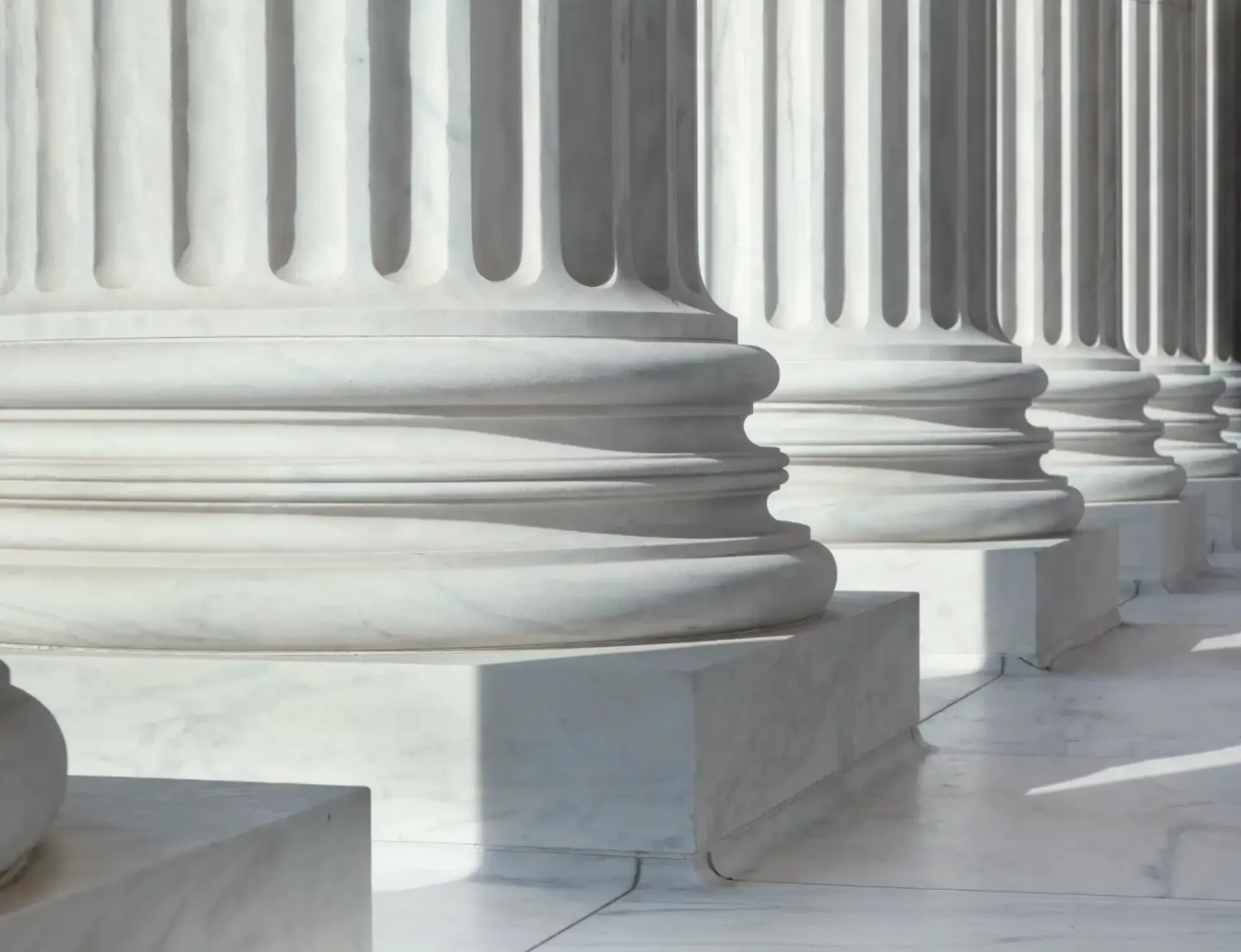July 1, 2025
All persons in the United States have constitutional protections, including the right to remain silent when questioned or arrested by immigration officers. Being stopped by immigration officers or other law enforcement can be frightening, but it’s important to stay calm. During any encounter with law enforcement, Stay calm and don’t run, argue, resist, or fight the officer, even if you believe your rights are being violated or you are being treated unfairly. Keep your hands where police can see them, and tell them if you need to reach into a glove compartment or for a wallet to show your papers. If you are a U.S. citizen or have lawful immigration status: Show your passport, legal permanent resident card, work permit, or other documentation of your status. If you are over the age of 18, you should carry your papers with you at all times. If you are undocumented: You have the right to remain silent and do not have to discuss your immigration or citizenship status with the police, immigration agents, or other officials. Anything you tell an officer can later be used against you in immigration court. Tell your loved ones that if you are detained by ICE, they can try to use ICE’s online detainee locator to find you: https://locator.ice.gov/odls/#/search STOPPING A PERSON Under 8 U.S.C. § 1357(a)(2) / INA § 287(a)(2), Immigration & Customs Enforcement (“ICE”) Officers may conduct warrantless arrests if there is “reason to believe that the alien [] [to be] arrested is [present] in the United States in violation of any [U.S. immigration] law and is likely to escape before a warrant can be obtained for [the] arrest.” Don’t lie about your status or provide false documents. The “reason to believe” standard requires ICE Officers to have probable cause that an individual is in the United States in violation of U.S. immigration laws and probable cause that the individual is likely to escape before a warrant can be obtained for the arrest. Timing and Scope of Probable Cause Requirements When Making Warrantless Arrests The ICE officer must conduct this determination at the time of the warrantless arrest. The analysis is required for all warrantless arrests, whether the individual is the target of the enforcement operation or a person arrested as a “collateral arrest” for the intended target. ICE officers must comply with these requirements even if they subsequently issue an administrative warrant during booking and processing. In considering “likelihood of escape,” an ICE Officer must consider the totality of circumstances known to the officer before making the arrest. While there is no exhaustive list of factors that should be considered in determining whether an individual is “likely to escape before a warrant can be obtained” under 8 U.S.C. § 1357(a) / INA § 287(a), factors relevant to the determination may include the ICE Officer’s ability to determine the individual’s identity, knowledge of that individual’s prior escapes or evasions of immigration authorities, attempted flight from an ICE Officer, ties to the community (such as a family, home, or employment) or lack thereof, or other specific circumstances that weigh in favor or against a reasonable belief that the subject is likely to abscond. The Required “Likely to Escape” Probable Cause Analysis Mere presence within the United States in violation of U.S. immigration law is not sufficient to conclude that a noncitizen is likely to escape before a warrant for arrestcan be obtained. Whether an individual has a known residence, immediate family members with whom they live or care for, or employment in the community are all relevant factors for whether there is probable cause that the person might escape before an arrest warrant could be obtained The particular circumstances before the ICE Officer are not to be viewed singly; rather, they must be considered as a whole. However, mere presence within the United States in violation of U.S. immigration law is not, by itself, sufficient to conclude that an alien is likely to escape before a warrant for arrest can be obtained. When conducting enforcement actions, ICE Officers shall, at the time of arrest or as soon as it is practical and safe to do so, identify themselves as immigration officers in accordance with8 C.F.R. § 287.8(c)(2)(iii). The Required “Likely to Escape” Probable Cause Analysis Under the Policy, if the ICE officer determines that the noncitizen IS NOT likely to escape before (s)he may obtain a warrant, the ICE officer cannot make the warrantless arrest. In those circumstances, ICE must first obtain a warrant before the individual can be arrested. If the ICE officer determines that the noncitizen IS likely to escape before (s)he may obtain a warrant, under the Policy, the ICE officer must state that the person is under arrest by ICE, the reason for arrest, and then document the basis for that decision in the Form I-213. I-213 Documentation: 6 Required Facts the noncitizen was arrested without a warrant the location of the arrest (e.g., place of business, residence, vehicle, or a public area) whether the noncitizen is an employee of the business, if arrested at a place of business, or whether the noncitizen is a resident of the residence, if arrested at a residential location the noncitizen’s ties to the community, if known at the time of arrest, including family, home, or employment the specific, particularized facts supporting the conclusion that the noncitizen was likely to escape before a warrant could be obtained a statement of how “at the time of arrest, the immigration officer [did], as soon as it [was] practical and safe to do so, identif[ied] himself or herself as an immigration officer who is authorized to execute an arrest; and state[d] that the person is under arrest and the reason for the arrest. After having made an arrest under 8 U.S.C. § 1357(a)(2) / INA § 287(a)(2), an ICE Officer must document the facts and circumstances surrounding that warrantless arrest in the narrative section of the alien’s I-213 as soon as practicable. This documentation must include: (1) that the alien was arrested without a warrant; (2) the location of the arrest and whether this location was a place of business, residence, vehicle, or a public area; (3) whether the alien is an employee of the business, if arrested at a place of business, or whether the alien is a resident of the residence, if arrested at a residential location; (4) the alien’s ties to the community, if known at the time of arrest, including family, home, or employment (Note: Information learned post-arrest relevant to custody determination should be documented separately from the information relevant to likelihood of escape known at the time of the warrantless arrest.); (5) the specific, particularized facts supporting the conclusion that the alien was likely to escape before a warrant could be obtained; and (6) a statement of how “at the time of arrest, the designated immigration officer [did], as soon as it [wa]s practical and safe to do so, identify himself or herself as an immigration officer who is authorized to execute an arrest; and state[d] that the person is under arrest and the reason for the arrest.” If an officer knocks on your door: Do not open the door. Teach your children not to open the door. Officers must have a warrant signed by a judge to enter your home. ICE “warrants” are not signed by judges; they are ICE forms signed by ICE officers and they do not grant authority to enter a home without consent of the occupant(s). VEHICLE STOPS The policy above applies to all warrantless arrests under 8 U.S.C. § 1357 (a) (2) / INA § 287(a)(2), including warrantless arrests resulting from vehicle stops. As federal law enforcement officers, ICE Officers lack federal statutory authority to enforce state or local vehicle or traffic laws. See 8 U.S.C. §§ 1357 (a)(4), (a)(5) / INA §§ 287(a)(4), (a)(5). Accordingly, when making vehicle stops, ICE Officers shall not state to the driver or occupant(s) of a vehicle that the purpose for a stop is related to any vehicle or traffic laws and regulations. If you are pulled over in a traffic stop: Ask if the officer is from the police department or immigration. Immigration officers often identify themselves as “police,” but they are not police. Ask if they are from Immigration and Customs Enforcement (ICE) or Customs and Border Protection (CBP). “Likely to Escape” Analysis for Vehicle Stops The required “likely to escape” determination under the Policy applies to all warrantless arrests, including those resulting from vehicle stops. The Policy advises ICE officers that they lack authority to enforce state or local vehicle and traffic laws. Under the Policy, ICE officers are prohibited from stating to a driver or occupant that a vehicle stop is related to a vehicle or traffic violation. All vehicle stops to enforce civil immigration laws require specific, articulable facts that reasonably warrant suspicion that the vehicle contains a noncitizen who may be illegally in the United States. Factors that may warrant reasonable suspicion to make a vehicle stop near or at the border may not be the same that would warrant reasonable suspicion in the interior of the United States. Factors that may satisfy reasonable suspicion in the interior should be more specific to a suspected individual rather than factors related to a vehicle, the appearance of its occupants, or location of the encounter. Under the Policy, in addition to the documentation requirements for warrantless arrests, ICE officers must document the facts and circumstances surrounding a vehicle stop that resulted in a warrantless arrest in the narrative section of the Form I213. Specifically, the ICE officer must document: specific, articulable facts prior to the stop that formed the basis for the ICE officer’s reasonable suspicion that a noncitizen in the vehicle stopped was present within the United States in violation of U.S. immigration law ICE Officers may stop a vehicle to enforce civil immigration laws only if they are aware of specific, articulable facts that reasonably warrant suspicion that the vehicle contains an alien(s) who may be illegally in the country. As soon as practicable after making an arrest under 8 U.S.C. § 1357(a)(2) / INA § 287(a)(2) pursuant to a vehicle stop, in addition to the documentation requirements for warrantless arrests described above, the ICE Officer also must document the facts and circumstances surrounding the vehicle stop that resulted in a warrantless arrest in the narrative section of the alien’s I-213. This documentation shall include the specific, articulable facts that formed the basis for the ICE Officer’s reasonable suspicion that an alien in the vehicle stopped was present within the United States in violation of U.S. immigration law. SOURCE: NATIONAL IMMIGRANT JUSTICE CENTER











